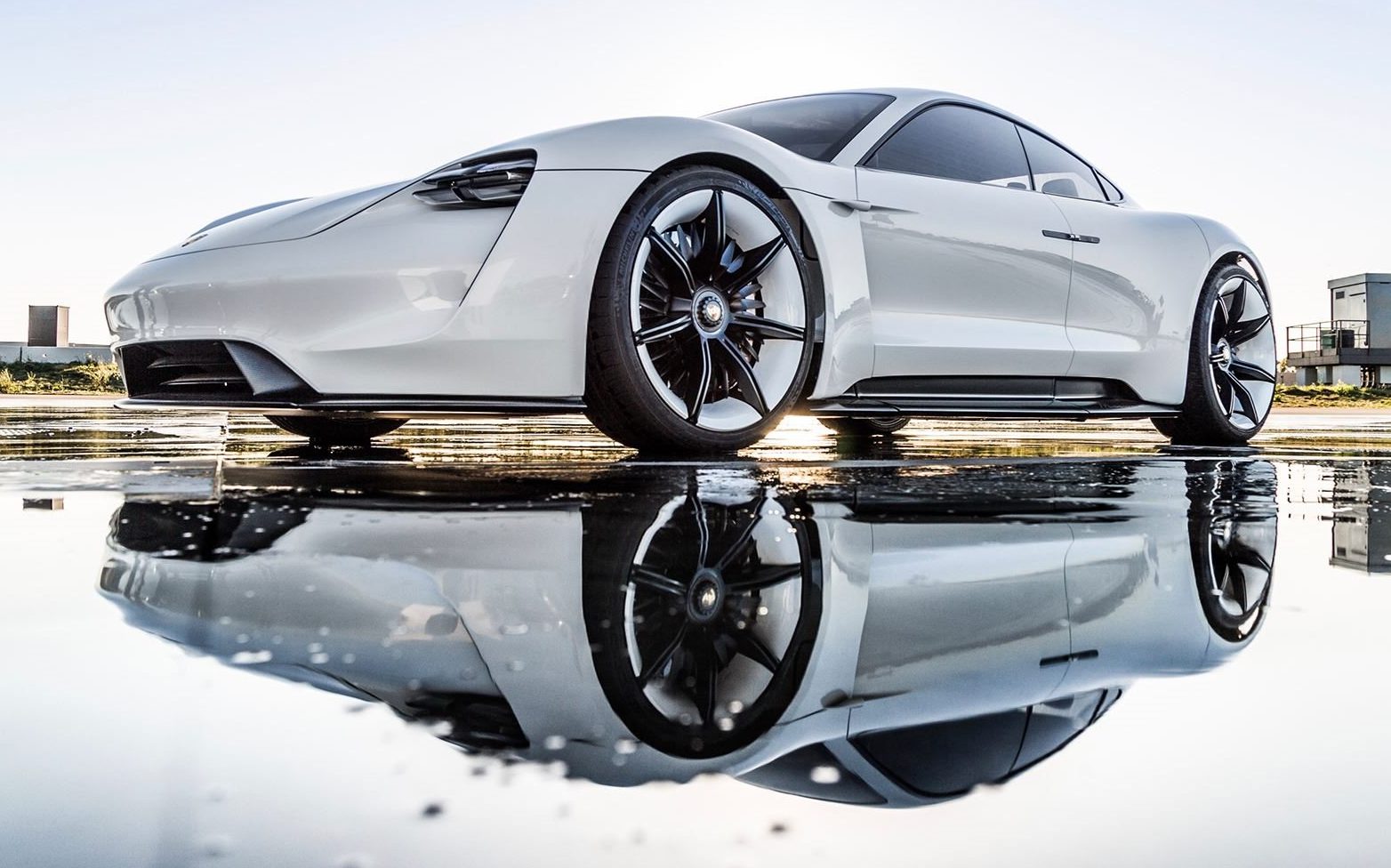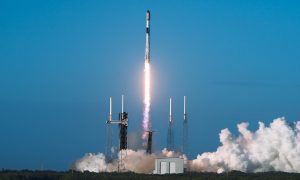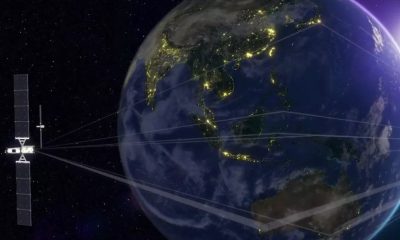

News
Porsche CEO hints at Taycan’s increased initial production, electrified 911
Porsche appears to be set on expediting the electrification of its fleet, with CEO Olliver Blume recently noting that the company would be raising the numbers of the Taycan’s initial production due to strong demand for the vehicle. Apart from this, Blume also hinted at what could very well be the eventual release of an electrified Porsche 911.
Blume’s statements were related to weekly German business news publication WirtschaftsWoche during an interview. The CEO noted that in Norway, where Porsche usually expects to sell around 600 vehicles per year, the company had already accepted almost 3,000 reservations for its first all-electric car. With such a strong, positive reception for the vehicle, Porsche has opted to adjust the Taycan’s initial production run, which was originally set at 20,000 units per year.
“The annual production capacity is 20,000 vehicles. However, due to the positive response, we will adjust this number upwards, especially since the Cross Turismo as the first derivative of the Taycan got (the) green light for the series,” Blume said.
Earlier this year, the company announced that it is abandoning its diesel lineup, even declaring that it expects every second Porsche sold in 2025 to have an electric motor. Blume noted that the company’s electrification initiative would affect even the legacy carmaker’s classic offerings, including the iconic Porsche 911. The CEO remarked that the design of the newly-unveiled 911 is ready for electrification, and thus, a hybrid version of the vehicle would probably be released within the current iteration’s life cycle.
“The new 911 comes to the start as a gasoline engine. But it is already designed so that we can bring in a hybrid drive. Maybe in the course of its life cycle,” he said.
Apart from announcing the updates on the Taycan’s production and the 911’s likely electrification, Blume also expressed his skepticism of hydrogen-powered vehicles, such as those adopted by rivals Toyota and Mercedes-Benz. According to the CEO, battery-powered vehicles simply offer better value and performance over fuel-cell cars.
“The battery is in energy efficiency in operation three times better than hydrogen and six times better than synthetic fuels. If you include the energy-intensive production of batteries, they are still about twice as efficient as other types of drives. This applies both to the use in our two-door sports car as well as sporty sedans and our SUV,” he said.
Porsche is yet to unveil the final production design of the Taycan, though expectations are high that the release version of the electric vehicle would closely resemble the stunning Mission E sedan concept car that debuted at the 2015 Frankfurt Motor Show. Production of the Taycan is expected to begin sometime in 2019 at a facility located at Zuffenhausen, a suburb in Stuttgart, Germany — the same factory where the company manufactures the Porsche 911. The Mission E Cross Turismo, an off-road-capable version of the Taycan, is expected to begin production in 2020.
The Porsche Taycan will not have an engine, but the company notes that the vehicle will have the ever-present “soul” found in all of its cars. Expected to compete with the Tesla Model S, the Taycan is features the legacy carmaker’s trademark performance, with the vehicle being listed with a 0-60 mph time of 3.5 seconds, a range of 310 miles per charge, and a top speed of 155 mph.
News
Tesla begins Robotaxi certification push in Arizona: report
Tesla seems serious about expanding its Robotaxi service to several states in the coming months.

Tesla has initiated discussions with Arizona transportation regulators to certify its driverless Robotaxi service in the state, as per a recent report from Bloomberg News. The move follows Tesla’s launch of its Robotaxi pilot program in Austin, Texas, as well as CEO Elon Musk’s recent comments about the service’s expansion in the Bay Area.
The Arizona Department of Transportation confirmed to Bloomberg that Tesla has reached out to begin the certification process for autonomous ride-sharing operations in the state. While details remain limited, the outreach suggests that Tesla is serious about expanding its driverless Robotaxi service to several territories in the coming months.
The Arizona development comes as Tesla prepares to expand its service area in Austin this weekend, as per CEO Elon Musk in a post on X. Musk also stated that Tesla is targeting the San Francisco Bay Area as its next major market, with a potential launch “in a month or two,” pending regulatory approvals.
Tesla first launched its autonomous ride-hailing program on June 22 in Austin with a small fleet of Model Y vehicles, accompanied by a Tesla employee in the passenger seat to monitor safety. While still classified as a test, Musk has said the program will expand to about 1,000 vehicles in the coming months. Tesla will later upgrade its Robotaxi fleet with the Cyercab, a two-seater that is designed without a steering wheel.
Sightings of Cybercab castings around the Giga Texas complex suggests that Tesla may be ramping the initial trial production of the self-driving two-seater. Tesla, for its part, has noted in the past that volume production of the Cybercab is expected to start sometime next year.
In California, Tesla has already applied for a transportation charter-party carrier permit from the state’s Public Utilities Commission. The company is reportedly taking a phased approach to operating in California, with the Robotaxi service starting with pre-arranged rides for employees in vehicles with safety drivers.
News
Tesla sets November 6 date for 2025 Annual Shareholder Meeting
The automaker announced the date on Thursday in a Form 8-K.

Tesla has scheduled its 2025 annual shareholder meeting for November 6, addressing investor concerns that the company was nearing a legal deadline to hold the event.
The automaker announced the date on Thursday in a Form 8-K submitted to the United States Securities and Exchange Commission (SEC). The company also listed a new proposal submission deadline of July 31 for items to be included in the proxy statement.
Tesla’s announcement followed calls from a group of 27 shareholders, including the leaders of large public pension funds, which urged Tesla’s board to formally set the meeting date, as noted in a report from The Wall Street Journal.
The group noted that under Texas law, where Tesla is now incorporated, companies must hold annual meetings within 13 months of the last one if requested by shareholders. Tesla’s previous annual shareholder meeting was held on June 13, 2024, which placed the July 13 deadline in focus.
Tesla originally stated in its 2024 annual report that it would file its proxy statement by the end of April. However, an amended filing on April 30 indicated that the Board of Directors had not yet finalized a meeting date, at least at the time.
The April filing also confirmed that Tesla’s board had formed a special committee to evaluate certain matters related to CEO Elon Musk’s compensation plan. Musk’s CEO performance award remains at the center of a lengthy legal dispute in Delaware, Tesla’s former state of incorporation.
Due to the aftermath of Musk’s legal dispute about his compensation plan in Delaware, he has not been paid for his work at Tesla for several years. Musk, for his part, has noted that he is more concerned about his voting stake in Tesla than his actual salary.
At last year’s annual meeting, TSLA shareholders voted to reapprove Elon Musk’s compensation plan and ratified Tesla’s decision to relocate its legal domicile from Delaware to Texas.
Elon Musk
Grok coming to Tesla vehicles next week “at the latest:” Elon Musk
Grok’s rollout to Tesla vehicles is expected to begin next week at the latest.

Elon Musk announced on Thursday that Grok, the large language model developed by his startup xAI, will soon be available in Tesla vehicles. Grok’s rollout to Tesla vehicles is expected to begin next week at the latest, further deepening the ties between the two Elon Musk-led companies.
Tesla–xAI synergy
Musk confirmed the news on X shortly after livestreaming the release of Grok 4, xAI’s latest large language model. “Grok is coming to Tesla vehicles very soon. Next week at the latest,” Musk wrote in a post on social media platform X.
During the livestream, Musk and several members of the xAI team highlighted several upgrades to Grok 4’s voice capabilities and performance metrics, positioning the LLM as competitive with top-tier models from OpenAI and Google.
The in-vehicle integration of Grok marks a new chapter in Tesla’s AI development. While Tesla has long relied on in-house systems for autonomous driving and energy optimization, Grok’s integration would introduce conversational AI directly into its vehicles’ user experience. This integration could potentially improve customer interaction inside Tesla vehicles.
xAI and Tesla’s collaborative footprint
Grok’s upcoming rollout to Tesla vehicles adds to a growing business relationship between Tesla and xAI. Earlier this year, Tesla disclosed that it generated $198.3 million in revenue from commercial, consulting, and support agreements with xAI, as noted in a report from Bloomberg News. A large portion of that amount, however, came from the sale of Megapack energy storage systems to the artificial intelligence startup.
In July 2023, Musk polled X users about whether Tesla should invest $5 billion in xAI. While no formal investment has been made so far, 68% of poll participants voted yes, and Musk has since stated that the idea would be discussed with Tesla’s board.
-

 Elon Musk1 week ago
Elon Musk1 week agoTesla investors will be shocked by Jim Cramer’s latest assessment
-

 Elon Musk3 days ago
Elon Musk3 days agoElon Musk confirms Grok 4 launch on July 9 with livestream event
-

 Elon Musk16 hours ago
Elon Musk16 hours agoxAI launches Grok 4 with new $300/month SuperGrok Heavy subscription
-

 News7 days ago
News7 days agoTesla Model 3 ranks as the safest new car in Europe for 2025, per Euro NCAP tests
-

 Elon Musk2 weeks ago
Elon Musk2 weeks agoA Tesla just delivered itself to a customer autonomously, Elon Musk confirms
-

 Elon Musk1 week ago
Elon Musk1 week agoxAI’s Memphis data center receives air permit despite community criticism
-

 Elon Musk2 weeks ago
Elon Musk2 weeks agoTesla’s Omead Afshar, known as Elon Musk’s right-hand man, leaves company: reports
-

 News2 weeks ago
News2 weeks agoXiaomi CEO congratulates Tesla on first FSD delivery: “We have to continue learning!”

















